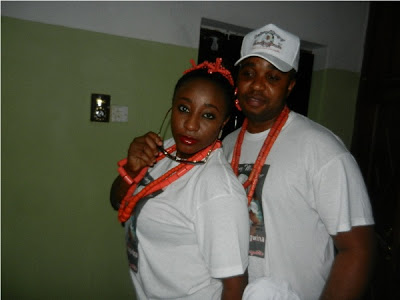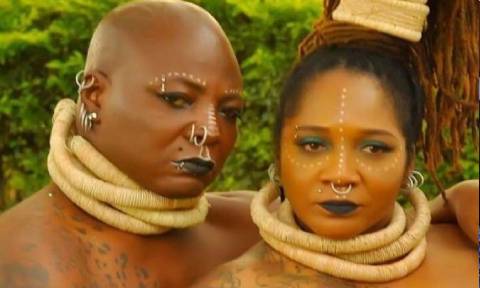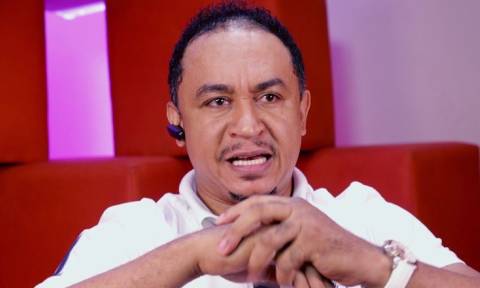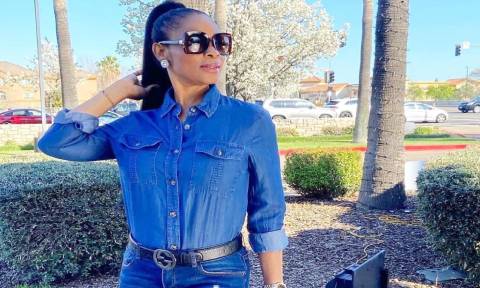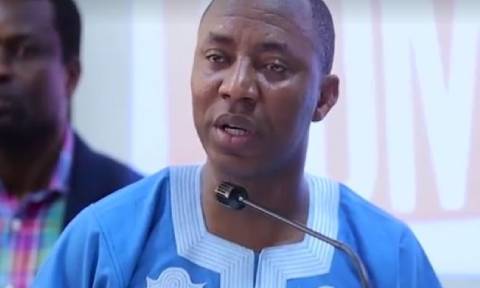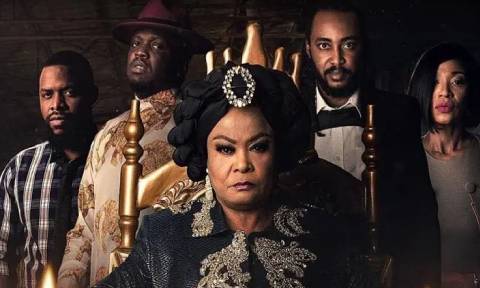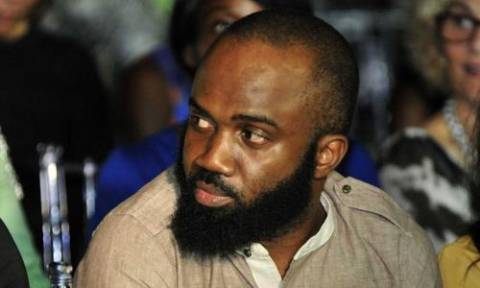
It sounds a lot like hate speech when you first hear it but the Ghanaian musical duo Fokn Bois do speak some truths in Thank God We’re Not a Nigerians (sic) – a song that in many ways characterised the journey from Lagos to Yenagoa where the 2013 Africa Movie Awards were held last weekend in Bayelsa, Nigeria.
If its your first time in Nigeria and if your handlers were anything like ours, then expect to be in a constant state of agitation in the first 24 hours of arrival.
“Always shouting very loud/don’t know how to whisper/thank God we’re not a Nigerians!” so proclaims a line in the song and this was indeed our experience while dealing with airport authorities who, when they were not mumbling or grumbling their annoyance at our perceived slowness among other transgressions, were literally shouting at us which only served to make us more confused and frustrated.
We, the Kenyan delegation of filmmakers and journalists, would quickly discover that in Nigeria, the customer is never right – the antithesis of the rule of thumb in public relations recognised worldwide except only, it seemed, in Nigeria where it appeared the norm is to blame the ‘other’ and that includes the customer who is often perceived as most at fault.
On the other hand, the service-provider is hardly ever to blame despite glaring irregularities on their part. For example, while trying to board our flight to Bayelsa, our Nigerian handler issued us with boarding passes with names not corresponding with those printed in our passports and when we asked about this we were told, “Don’t show your passports. Just hand in your boarding pass.”
As it turned out, the boarding passes they gave us did not correspond to our gender – then men in our group got passes with female Nigerian names printed on them while the women got passes with male Nigerian names.
Not surprisingly, the immigration officer at the check-in was having none of it and rightly so because it is (apparently) illegal to board a flight under such circumstances.
And so began our 10-hour ordeal at the Murtala Muhammed 2 International Airport where we camped on the airport floor while our handlers attempted to buy us new plane tickets after missing our flight.
A friend in Nigeria explained that boarding passes of passengers who have cancelled their flights are often re-sold and so our delegation drew conclusions leaning towards cost-cutting issues on the part of the organisers.
In Nigeria, we learned what it means to hurry up and wait. “Hurry! Hurry! Hurry! The bus is here!” our handlers would often shout these six words at us and we would scramble madly and get moving as if the building was on fire only to assemble outside in anticipation of a bus that at was least an hour on its way.
“Hurry up and wait” so became a lasting, tongue-in-cheek expression amongst our delegation during our five-day trip to and from the Africa Movie Academy Awards.
If its your first time in Nigeria, always change your money at the airport. Period. Unless of course you are Nigerian and have a Nigerian bank account with one or more of the many banks in Nigeria.
It turns out that many Nigerian banks will not change your US dollars to Naira for fear of fraud and so after a visit to four banks we gave up the search.
Luckily, the hotel we checked in to changes dollars for its clients and so we were able to buy water and food until the ‘other’ handlers came.
Jackie Lebo, a filmmaker in our delegation, had on arrival told us that she had been warned by the Kenyan filmmakers nominated for the 2012 awards to pack dry food like crisps in her luggage as there would be long periods where the Kenyan delegation would go without food or water.
And so, after one of the journalists in our group managed to withdraw some Naira with her visa card, we hurriedly bought some plantain crisps, biscuits, sodas and water to sustain us until our ‘other’ handlers arrived.
Sorry is a word we heard often during our stay in Nigeria but as the saying goes, sorry is a sorry word. We lost count of the number of times we heard, “Sorry.
This is Africa.” or “Sorry. Nigeria is a big country with big problems.” or “Sorry. We are looking into it the matter and will make sure it doesn’t happen again.”


